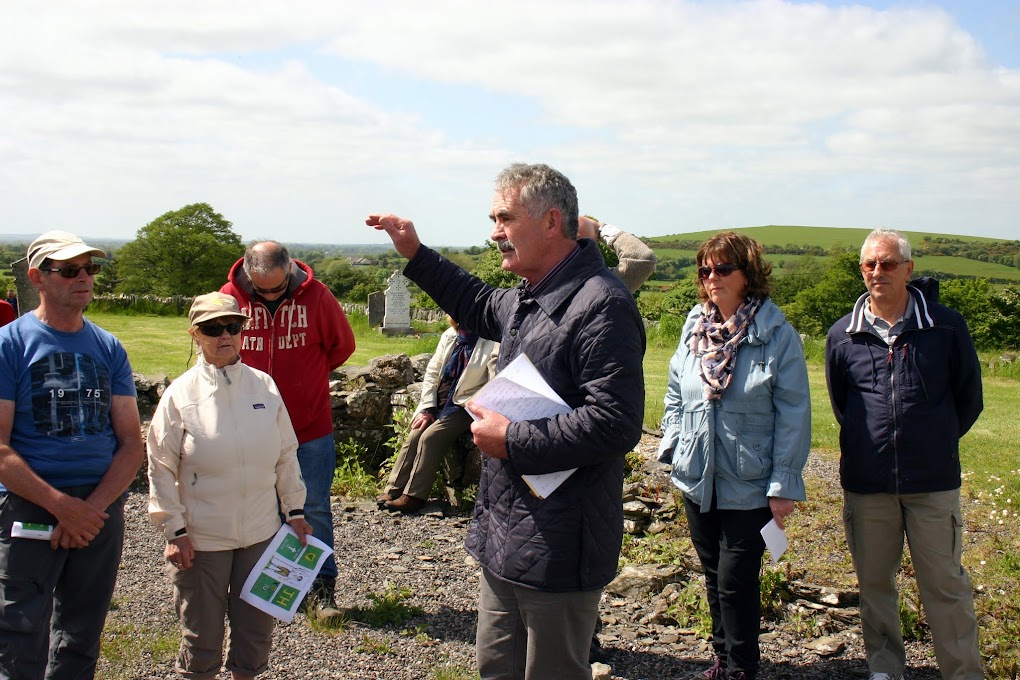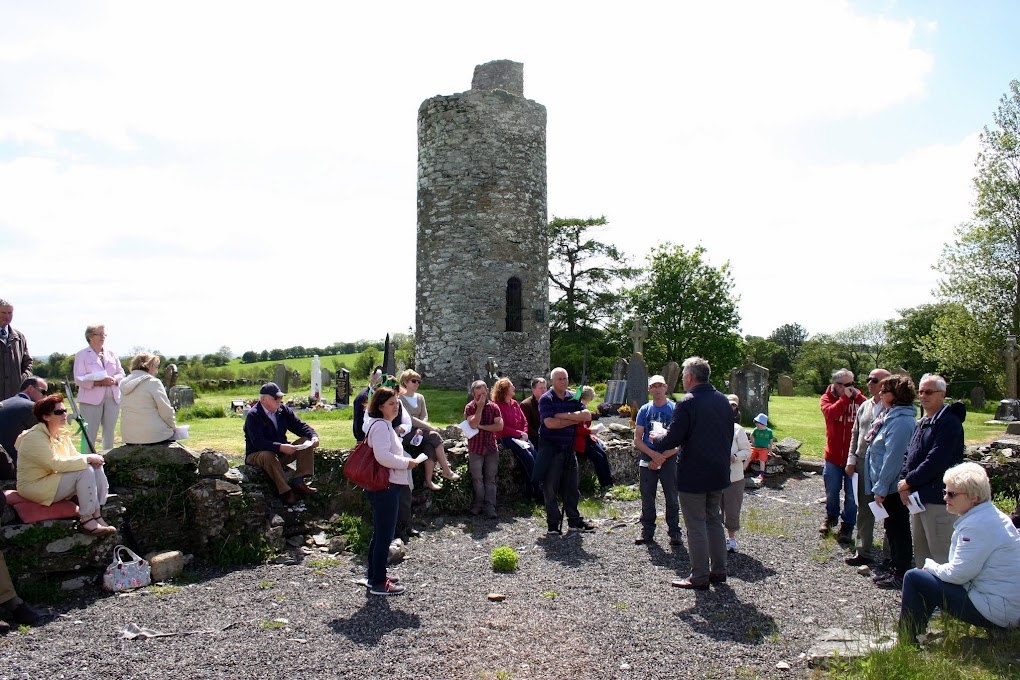Fascinating 1798 battle talk
Gerry O'Donoghue has many talents, and he gave the benefits of one of them — historian raconteur — to a group of people who gathered at the round tower of Old Kilcullen yesterday, writes Brian Byrne.
It was a gathering much more peaceable than the subject of his talk, about the Irish rebels who took part in one of the first battles of 1798, the only one won, on 24 May in that year.
Gerry has a personal passion for the battle, which brings him to Old Kilcullen on this date every year. A chance meeting with local resident Sabina Reddy on one of these led to her suggestion of today's event.
A really good suggestion. His talk lasted just a tad over half an hour, but in that short space he brought all present on a time-travel that encompassed five days between the evening of 23 March and the 28th of the month. Armed with little more than long pikes and determination, the rebels repelled the cavalry and dragoons of General Dundas, inflicting heavy casualties on horse, men and morale of the English soldiery.
Over the next few days, the rebels attempted to capitalise on their success by attacking a regrouped force, but were defeated by Dundas's men, and eventually negotiated terms for a surrender on nearby Knockaulin.
That's the short account, but as Gerry O'Donoghue told it, with the back-stories and the sidelines and the talk-pictures of the key people involved, it came to life today on Old Kilcullen Hill.
The atmosphere of the afternoon was added to by the presence of Narraghmore's John Duffy, whose own fascination with the period had him amassing a collection of pikes similar to those used by the rebels, and he dressed for the occasion in the style of a 'croppy boy' of the times.
They were brutal times, too, as graphically described by both Gerry and John, and we'll not go into some of the torture and killing techniques here. But parallels were drawn of the equivalent situations of today, such as in Syria and Iraq. Barbarity in war hasn't lessened, nor has the fact changed that it's after the battles are won or lost that the civilian populations, particularly the women and children, pay the price when the headline writers have moved on.
A sobering afternoon, a fascinating one. And it may well become an annual gathering, another in a long list of things that keep happening in Kilcullen.
Mark it here. This could be big. Will be.
More pictures here.
It was a gathering much more peaceable than the subject of his talk, about the Irish rebels who took part in one of the first battles of 1798, the only one won, on 24 May in that year.
Gerry has a personal passion for the battle, which brings him to Old Kilcullen on this date every year. A chance meeting with local resident Sabina Reddy on one of these led to her suggestion of today's event.
A really good suggestion. His talk lasted just a tad over half an hour, but in that short space he brought all present on a time-travel that encompassed five days between the evening of 23 March and the 28th of the month. Armed with little more than long pikes and determination, the rebels repelled the cavalry and dragoons of General Dundas, inflicting heavy casualties on horse, men and morale of the English soldiery.
Over the next few days, the rebels attempted to capitalise on their success by attacking a regrouped force, but were defeated by Dundas's men, and eventually negotiated terms for a surrender on nearby Knockaulin.
That's the short account, but as Gerry O'Donoghue told it, with the back-stories and the sidelines and the talk-pictures of the key people involved, it came to life today on Old Kilcullen Hill.
The atmosphere of the afternoon was added to by the presence of Narraghmore's John Duffy, whose own fascination with the period had him amassing a collection of pikes similar to those used by the rebels, and he dressed for the occasion in the style of a 'croppy boy' of the times.
They were brutal times, too, as graphically described by both Gerry and John, and we'll not go into some of the torture and killing techniques here. But parallels were drawn of the equivalent situations of today, such as in Syria and Iraq. Barbarity in war hasn't lessened, nor has the fact changed that it's after the battles are won or lost that the civilian populations, particularly the women and children, pay the price when the headline writers have moved on.
Mark it here. This could be big. Will be.
More pictures here.


































